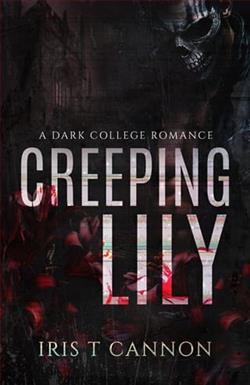Page 6 of After the Rain
As I headed upstairs to my empty bedroom, I made a mental note to be more supportive when I had the chance. If other parents were going to create problems for Cooper's teacher based on speculation and prejudice, at least one parent could make it clear that what he did in the classroom was what counted.
And when I fell asleep that night, I was thinking about how to protect Cooper from the kind of small-town gossip that could hurt people who didn't deserve it.
TWO
THE PROFESSIONAL AND THE PERSONAL
EZRA
Iwas arranging desks in my classroom like they were pieces of a chess game, and I was losing.
Four-thirty on a Thursday afternoon, thirty minutes before parent-teacher conferences began, and my hands were actually trembling as I set out Cooper Harrison's portfolio. Which was ridiculous. I'd been teaching for eight years. I could handle parent conferences in my sleep.
But Wade Harrison's appointment was at six o'clock, and I'd been dreading this conversation for three days straight.
Not because Cooper was struggling—quite the opposite. Cooper was one of those students who made teaching feel like a calling rather than a job. But his father was recently divorced, clearly overwhelmed by single parenthood, and I'd learned to be careful around vulnerable parents who might misinterpret professional concern as something inappropriate.
Cooper's file lay open in front of me, and I found myself reading his assessment notes for the third time. Academically, the kid was fascinating. Bright, curious, showed spatial reasoning skills that were genuinely advanced for his age. Hisblock constructions demonstrated understanding of balance and proportion that most kids didn't develop until second grade. His drawings revealed an intuitive grasp of perspective that suggested real artistic talent.
But it was more than raw ability. Cooper approached learning with the kind of methodical curiosity that reminded me why I'd become a teacher in the first place. When we'd worked on pattern recognition last week, he hadn't just identified the sequences—he'd started creating variations, testing hypotheses about what might come next. The kid was a natural scientist, a born engineer, wrapped up in the body of a six-year-old who still sometimes put his shoes on the wrong feet.
Socially, he was adjusting well to kindergarten, though he occasionally mentioned missing "when Mommy and Daddy lived together." The divorce was recent, that much was obvious from Wade's slightly frazzled energy and the way Cooper sometimes got quiet when other kids talked about family activities that involved both parents.
I'd developed specific strategies for supporting Cooper through this transition. Extra check-ins during free play, allowing him to be my helper when he seemed overwhelmed, making sure he had opportunities to talk about his feelings without putting him on the spot. My approach was rooted in attachment theory and trauma-informed practices—children needed consistency and emotional safety to thrive academically.
The divorce complicated things, but it also explained Cooper's particular brightness. Kids going through family transitions often developed heightened perceptiveness, learning to read adult emotions and anticipate needs. Cooper had that quality in spades, which made him both easier and harder to teach. Easier because he was so attuned to classroom dynamics, harder because he carried emotional weight that most six-year-olds didn't have to manage.
From my interactions at morning drop-off, I could see Wade was trying his best. Most parents showed up to conferences with a basic interest in their kid's grades, maybe some questions about homework expectations. Wade asked follow-up questions, remembered details from previous conversations, clearly saw education as a partnership between home and school. He understood that Cooper's creativity needed both structure and freedom, that his advanced spatial skills required specific kinds of challenges.
It was admirable. Wade's devotion to Cooper, his willingness to admit when he was struggling, the way he listened when I talked about child development like it actually mattered to him. He was exactly the kind of engaged parent every teacher hoped to work with.
But that also made this conference more delicate. Parents going through major life transitions sometimes developed attachments to their children's teachers that went beyond professional relationships. I'd learned to be careful—hypervigilant, really—about maintaining appropriate boundaries, especially with vulnerable families.
Portland had taught me that lesson in the most brutal way possible.
Three years ago, I'd been teaching second grade at Lincoln Elementary, one of the most progressive schools in the city. I'd felt safe there, accepted, part of a community that valued diversity and inclusion. My sexuality wasn't a secret, but it wasn't an issue either. I coached the after-school chess club, attended faculty potlucks with my boyfriend, lived openly without fear.
Then seven-year-old Damien Rivera joined my class in February, a sweet kid whose parents were going through a messy divorce. Damien was struggling—academically, socially, emotionally. He'd shut down in his previous classroom, stoppedparticipating, spent most of his time staring out the window with the kind of hollow expression that broke my heart.
I'd done what any good teacher would do. I'd created individualized learning plans, offered extra support during difficult transitions, made sure Damien felt seen and valued in our classroom community. I'd stayed after school to help him with reading, called his mother to coordinate strategies, recommended counseling resources that might help him process his family's changes.
Damien had flourished. His confidence returned, his academic performance improved, he started making friends. His mother, Elena, had been grateful—effusively so. She'd volunteered in our classroom, brought homemade treats for the whole class, nominated me for the district's Teacher Excellence Award.
But Damien's father, Leon Rivera, had seen something sinister in my attention to his son. A gay man spending extra time with a vulnerable child, staying after school for one-on-one tutoring, showing too much interest in Damien's emotional wellbeing. Leon had convinced himself that my professional care was something predatory, that my efforts to help Damien were actually efforts to "groom" him.
The complaints had started slowly. Questions about why Damien talked about Mr. Mitchell so much at home. Concerns about the "special treatment" his son was receiving. Requests to review lesson plans and communication records. Then escalation: formal complaints to the principal about "inappropriate relationships" and "concerning behavior patterns."
I'd tried to address Leon's concerns professionally. I'd documented every interaction, invited classroom observations, offered to include other staff members in Damien's supportplan. But Leon wasn't interested in reassurance. He was interested in removing what he perceived as a threat to his child.
The final blow had come when Leon accused me of "emotional manipulation" and demanded my termination. He'd claimed that I was using Damien's vulnerability to develop an "unhealthy attachment" that served my own psychological needs rather than Damien's educational ones. He'd threatened legal action, media attention, whatever it took to get the "predator" away from his son.
The school district had investigated, of course. They'd found no evidence of wrongdoing, no policy violations, no cause for disciplinary action. My principal had been supportive, my colleagues had rallied around me, parents in my classroom had written letters defending my character and professionalism.
But the damage was done. Leon had made sure his accusations spread through parent networks, social media, local news coverage. Even though I was cleared of any wrongdoing, my reputation was tainted. Parents looked at me differently, questioned my motives, watched my interactions with their children through a lens of suspicion.
I'd resigned at the end of the school year, not because I was guilty of anything, but because I couldn't teach effectively in an environment where my every gesture was scrutinized for signs of predatory behavior. I'd left Portland and moved to Cedar Falls, drawn by the school district's anti-discrimination policies and the hope that a smaller community might be more accepting.
But I'd learned to be careful. Extra careful. Never-be-alone-with-a-student careful. Document-every-interaction careful. Never-get-too-close-to-anyone careful.















